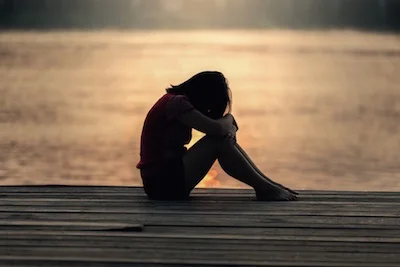Are You Struggling to Break Free from Addiction?
Does your life feel chaotic and out of control? Do you make rules for yourself and promises to others only to break them again and again? Maybe you are tired of trying to keep your stories straight as you reassure those who care about you that there is nothing to worry about. Physically you may be exhausted, and your body seems to be rebelling against you. You may wonder how you became this person or why you do things that hurt the people you love. Perhaps you still remember your old dreams and values and realize how far you are from your authentic self.
You may not even be sure that it is addiction that causes trouble in your life and wonder if you should be seeking addiction counselling. But you know for sure that you don’t want to live with all this frustration and emotional distress forever.
It can be very painful and confusing to be caught in the trap of addiction. On the one hand, you may know that your habits are destructive as they threaten your health, damage your relationships and destroy your self-confidence. Yet, despite the physical harm and difficult emotions that addiction can cause, such as feelings of anxiety, depression, irritability and anger, we continue to use. You may fear that you will never break free from the addiction and, as a result, may lose people and things you value. But, how are you supposed to give up something that makes you feel so alive, so carefree, so real? As you struggle to make lasting changes, it is easy to start wondering if something is wrong with you or your life.
Committing to addiction recovery can be difficult, and the road to recovery may require you to make tough choices. Perhaps you don’t think things are so bad and believe your substance use or other addictive behaviour is helping you cope with difficult life circumstances. You may not see why you should give up your use, but a spouse, family member or boss has given you an ultimatum to change your use “or else.” Alternately, you may be on the other end of addiction and it is your spouse or child who is struggling to quit using. You want to help, but all your efforts either fall on deaf ears or make things worse. Do you wish you could find the understanding, resources and support you need to sort out these difficult dilemmas?
Addiction Can Sneak Up On Anyone
No one is immune to addiction. In our society we seem to be experiencing an explosion in addiction-related problems. Alcohol and drug use often begins at younger ages and progresses rapidly from experimental to compulsive use. The fast pace of life – the economic pressures combined with decrease in family and community support – create conditions where addictive habits can become an escape and a respite from overwhelming stress. Each person is different and addiction can take many forms: misuse of alcohol or drugs, compulsive work habits, gambling, shopping, overeating, sex or pornography and obsession with social media, to name just a few. But the underlying pattern is always the same: the compulsive chase, the inability to stop in spite of negative consequences, the intense craving and dissatisfaction when the object of addiction is not available.
An addiction can begin innocently enough: trying to relieve stress, wanting to fit in or a desire to have fun and experience something new. You may be struggling with the demands of work or raising a family, coping with boredom or loneliness or trying to manage depression, anxiety, relationship problems or past trauma. The progression from an occasional indulgence to a life-ruining habit can be slow and subtle, and it is very easy to overlook the warning signs of addiction. Efforts to cut back or stop using become difficult and feelings of hopelessness and resignation increase the chances of a relapse.
The good news is that addictions are readily treated nowadays, usually with a combination of psychotherapy, social support and, in some cases, medication to address withdrawal symptoms or disabling mental health issues. When you call me we will immediately start putting together a step-by-step plan for your recovery.
Addiction Counselling Can Help You Break Out of the Cycle
There is no single right way to treat addiction. The traditional approach of 12 Step Programs, such as Alcoholics Anonymous (AA), promotes abstinence as a doorway to recovery. While 12 Step groups have saved countless lives over the decades, their philosophy is not easy for everyone to embrace.
My approach to addiction counselling is to engage with you in a joint quest to discover the circumstances in your life that led you to addiction. We will work collaboratively to put the pieces of the puzzle together so that you can come to see yourself clearly and understand your choices. From this self-awareness comes self-compassion, forgiveness and empowerment, replacing feelings of shame and self-condemnation that may be contributing to addictive behaviour. As one of my clients told me: “I was just trying to take care of myself in the only way I knew how. Now I know better.”
Research has shown how engaging with substances and addictive habits changes our brains and makes us more prone to pursue those substances and habits. The good news is that the brain keeps re-wiring itself throughout our lives, and we can harness this power. By practicing new skills and acquiring new tools, you can learn to more effectively cope with stress, solve problems, survive crises, navigate intimate relationships and manage difficult emotions. My role as an addictions counsellor is to be your coach and guide, helping you develop new skills and listening with compassion and understanding.
My experience with addiction counselling comes from 15 years of working in an addictions treatment centre. Over the years I watched how the field of addictions treatment kept changing. Recent exciting discoveries in neuroscience have given us a new understanding of the intricate connections between brain, mind and behaviour. I have learned that all addictions, at their core, are attempts to fix something and make life better. As such, addictions are an expression of our innate drive to seek happiness and fulfillment. I draw on scientifically validated approaches to addictions treatment to help you feel happy and fulfilled without the use of substances or unhealthy behaviours. The ultimate goal is getting your life back or creating a new life for yourself.
So Don’t Give Up!
Science has cracked the mysteries of addictive habits. Extensive research has given us powerful new tools and techniques for breaking addictive patterns and rebuilding lives and relationships. With the help of addiction counselling you can acquire effective tools for personal transformation, feel a surge in self-confidence and build a satisfying, fulfilling life. As one 19 year old girl told me: “Now that I accomplished this (stopping cocaine and alcohol use) I feel like I can do anything I put my mind to.”
But You May Still Have Questions About Addiction Counselling
My adult child struggles with alcohol and I’m trying to help, but I keep hearing that I should cut them off and let them hit the bottom.
Don’t withdraw your love and support from your struggling child! Hitting the bottom can be dangerous and some people never get back up. Feeling cared for by others is one of the most important factors in recovery. When I ask my clients what keeps them going on their path to change the answer is usually their partner, parents or kids. We are wired for love and thrive when our bonds with others are strong. Unfortunately, addiction can damage those bonds, making the road back to wellness much harder.
It is important that your support comes in a form that will be of most help to your child. Addiction counselling teaches family members how to help their loved ones. For years, while working at Pavillon Foster Drug and Alcohol Rehabilitation Centre, I ran support and education groups to help parents of adolescents who were abusing substances. In the course of this work I developed a Tool Kit for Parents that maximizes your ability to help your child turn things around. Together we can customize the parenting tool kit to fit your unique situation.
I heard that addictions programs don’t work and people just go back to drinking or using drugs
Unfortunately, you heard right. Some addictions treatment programs use unscientific, ineffective approaches that are not only unhelpful but can be damaging. One example is the idea that addicts need to be treated harshly and “broken down” before being “built up”.
However, relapse is not a sign of failure but a natural part of addiction recovery. By slipping and falling we learn what trips us up and can develop new ways of coping.
The Recovery Process Sounds Overwhelming. I Don’t Know If I Have the Time or theStrength To Do It.
Your concern is valid and reminds me of a poster I once saw: “Yard by Yard Life is Hard. Inch by Inch Life’s a Cinch”. Recovery work is about learning to live in the present moment. Knowing we can only work on today reduces overwhelming feelings and urges. This wisdom is reflected in the AA principles of taking it One Day at a Time and remembering that Tomorrow is Another Day. The only things we can control are the choices we make today, and the choices we make today will shape our tomorrow. So be daring. As Dr. Seuss said: “Today is your day! Your mountain is waiting. So be on your way” (Oh, The Places You’ll Go”)
You Can Live Free of Addiction
If you are ready to start working toward a life free of addiction, or if you would like to learn more about me or what I can offer you, I invite you to call my office in Pointe Claire, Montreal West Island at 514-697-7472 to schedule a free 20 minute telephone consultation.
Blog Posts
For more than 20 years I have been helping adults, teens, couples and families find pathways to more satisfying lives. I will listen to you with compassion and help you see possibilities for recovery and growth where you see none. Together, we can quickly but systematically discover and remove obstacles that are holding you back from living the life you were meant to live.








